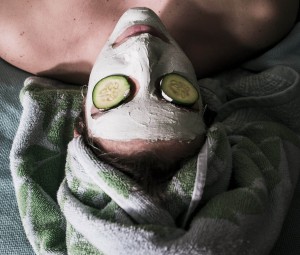Now more than ever, we see toxic environments on our daily social media apps. Platforms meant to bridge us together can sometimes do the opposite with hate comments, negative content and overexposure. While toxicity in social media is seen clearly, there might be a form of toxic content that you don’t even know is affecting you.
What is “Toxic Positivity”?
According to Right as Rain, a digital publication of the University of Washington School of Medicine, toxic positivity is the concept of “dismissing negative emotions and responding to distress with false reassurances rather than empathy.”
This usually presents itself in phrases such as “you will get over it,” or “look on the bright side.” It occurs when people use terms that tend to dismiss a person’s true state or emotions by suggesting methods that only focus on positive statements that give a person false reassurance.
If we look at toxic positivity in social media, it materializes in the form of privileged content creators promoting materialistic or “false reassurance methods” to get over feelings of anxiety, depression, etc.
Toxic Positivity in Social Media
Toxic positivity is more clear in some Instagram or Reddit feeds, with infographics or quotes with false reassurance phrases.

Whereas on TikTok, there is a form of toxic positivity that isn’t so night and day. People on TikTok have recently become critical of TikTok creators that promote a false sense of consistent positivity and toxic positivity as well. These creators are often known for always looking happy and having privileges such as access to an abundance of clothes and money, living in a tropical place, having a lot of free time or no job at all and more.
For example, TikToker and podcast host Alexis Hidalgo (or @lexxhidalgo on TikTok) has been criticized for promoting concepts of toxic positivity. She used to post videos about how easy it was to solve difficult feelings like just stepping outside and enjoying the sunshine, journaling or traveling the world to satisfy their desires.
Now, not everyone lives in a warm, tropical place like Florida or has the funds to travel to wherever they wish. She has since switched up her content with videos where she doesn’t feel her best and she promotes encouraging and positive ways to help her followers.

It’s not a bad thing to consume “positive” content, like a creator who values life greatly and finds the good in every day. However, the problem arises for those who might not share the same feelings of constant happiness and view this kind of content as a goal. A goal of always feeling happy and never having problems, which is not realistic.
Social media has been described as a highlight reel, meaning a platform where one only shares the good moments of their life and exclude anything negative or not appealing to viewers. More and more content creators realize the consequences of promoting a “happy always” lifestyle.
Creators like Ana Wolfermann or @anawolfermann on TikTok, are most times beams of light who post videos that indicate a person with lots of privileges and happiness. However, she has recently opened up about parts of her life that she doesn’t normally post that showcase normal feelings of insecurity, loneliness and sadness. This kind of transparency is so important in distinguishing what is real and what isn’t on social media, something we as viewers can lose sight of.

Scrolling Past Toxic Positivity on Social Media
If you feel like you compare your life or your situation to those you follow on social media, the best thing is to unfollow them. We know it might be challenging to give up content that you love to watch, but content that negatively affects the way you view yourself or your life isn’t worth keeping around.
To change the content you see on your For You Page or Instagram feed, you can “hack” the algorithm by interacting with more “real positivity” content. That means interacting with content creators that show other parts of their life, like internal struggles, insecurities or just imperfect situations they find themselves in.
Also, there are many Instagram accounts that have helpful quotations to aid you through a tough time and therapeutic advice to follow. Some Instagram accounts you could give a follow are @laurajaneillustrations, @miss_mental0, @sitwithwhit and @dearmyanxiety.

You don’t have to consume content that is entirely realistic all the time, but it’s important to know those creators you might deem to be “better off than you,” on social media have more than meets the eye.
What are your thoughts on toxic positivity on social media? Let us know by tweeting us @VALLEYmag on Twitter.





